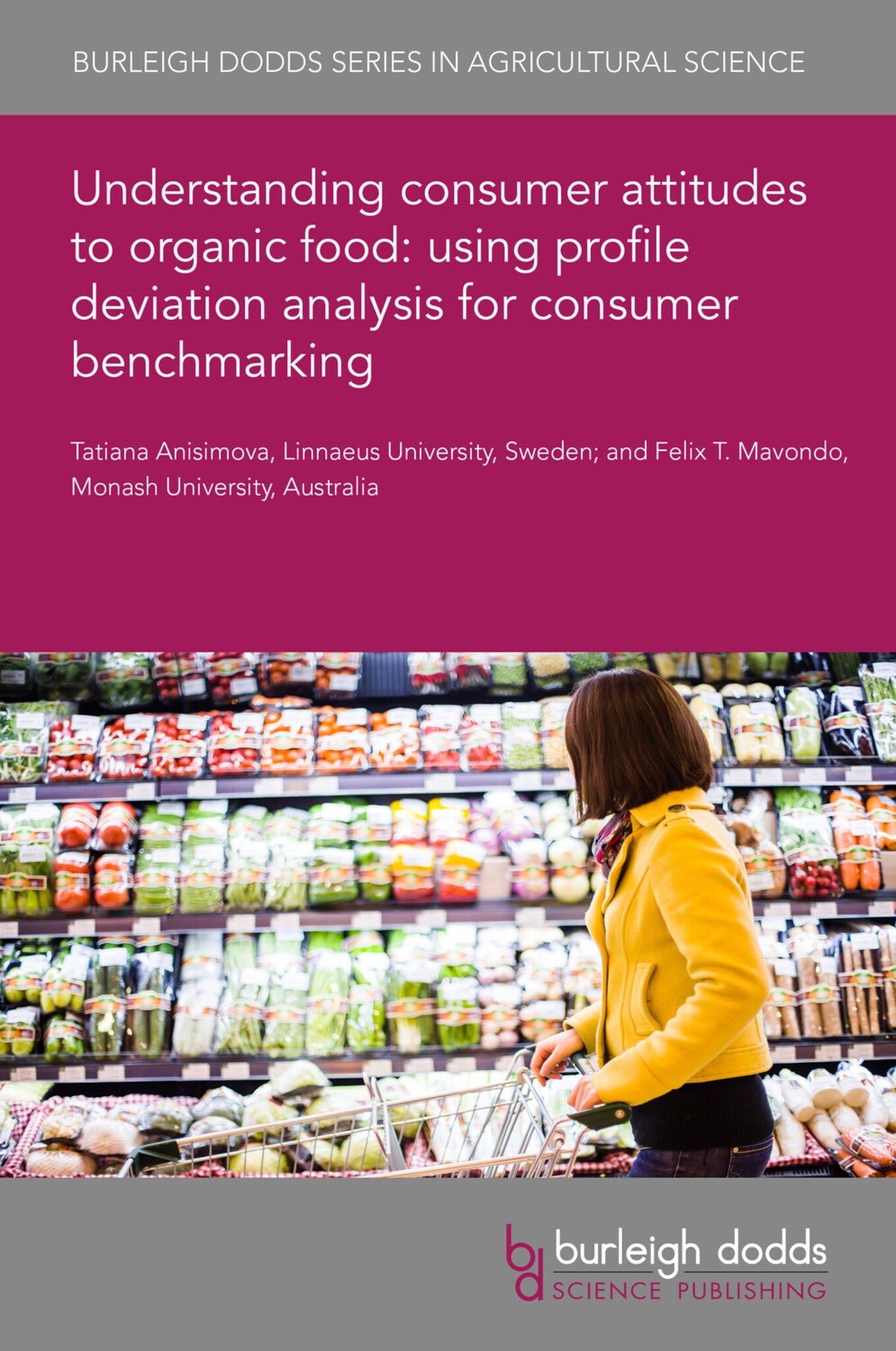We're sorry. An error has occurred
Please cancel or retry.
Understanding consumer attitudes to organic food: using profile deviation analysis for consumer benchmarking

Some error occured while loading the Quick View. Please close the Quick View and try reloading the page.
Couldn't load pickup availability
- Format:
-
13 November 2023

The purpose of this chapter is to examine to what extent misalignment with an organic food consumer benchmark profile affects two key consumer performance indicators: consumer satisfaction and loyalty. The chapter performs a profile deviation analysis on a cross-sectional sample of 1011 Australian organic food consumers. An extensive literature review revealed three key dimensions of comprising organic food consumer benchmark: healthism, hedonism, and organic food trust. The analysis reveals the significant negative consumer satisfaction and loyalty implications of deviating from the benchmark consumer profile. Separate profile deviation analyses for each theoretically identified consumer profile dimension (i.e. healthism, hedonism and trust) have revealed strong support for our hypotheses concerning loyalty.We demonstrate the theoretical and practical relevance of using configuration theory to understand and explain the consumer performance implications of a misalignment with a benchmark organic consumer profile.

BUSINESS & ECONOMICS / Consumer Behavior, Agriculture, agribusiness and food production industries, BUSINESS & ECONOMICS / Industries / Food Industry, TECHNOLOGY & ENGINEERING / Food Science / Food Safety & Security, TECHNOLOGY & ENGINEERING / Agriculture / Organic, Food security and supply, Cultural studies: food and society, Food and beverage safety, Organic farming

- 1 Introduction
- 2 Theoretical framework and hypothesis development
- 3 Hypothesis development
- 4 Method and data
- 5 Results and discussion
- 6 Conclusion
- 7 Study contributions and implications
- 8 Acknowledgement
- 9 Where to look for further information
- 10 References



